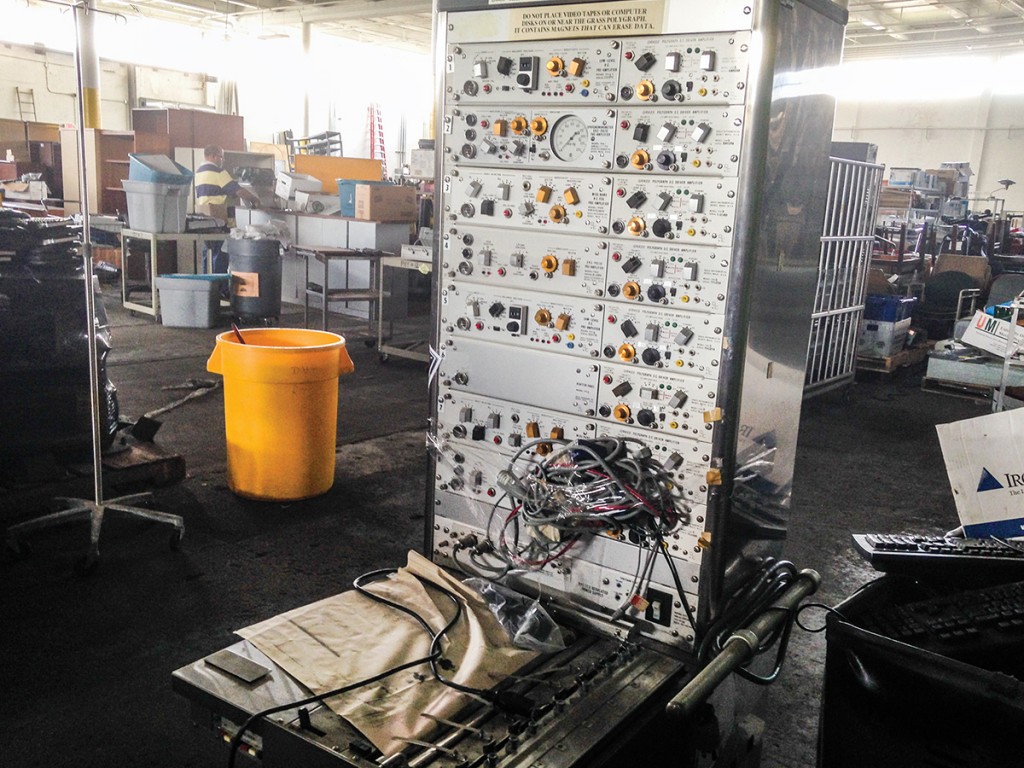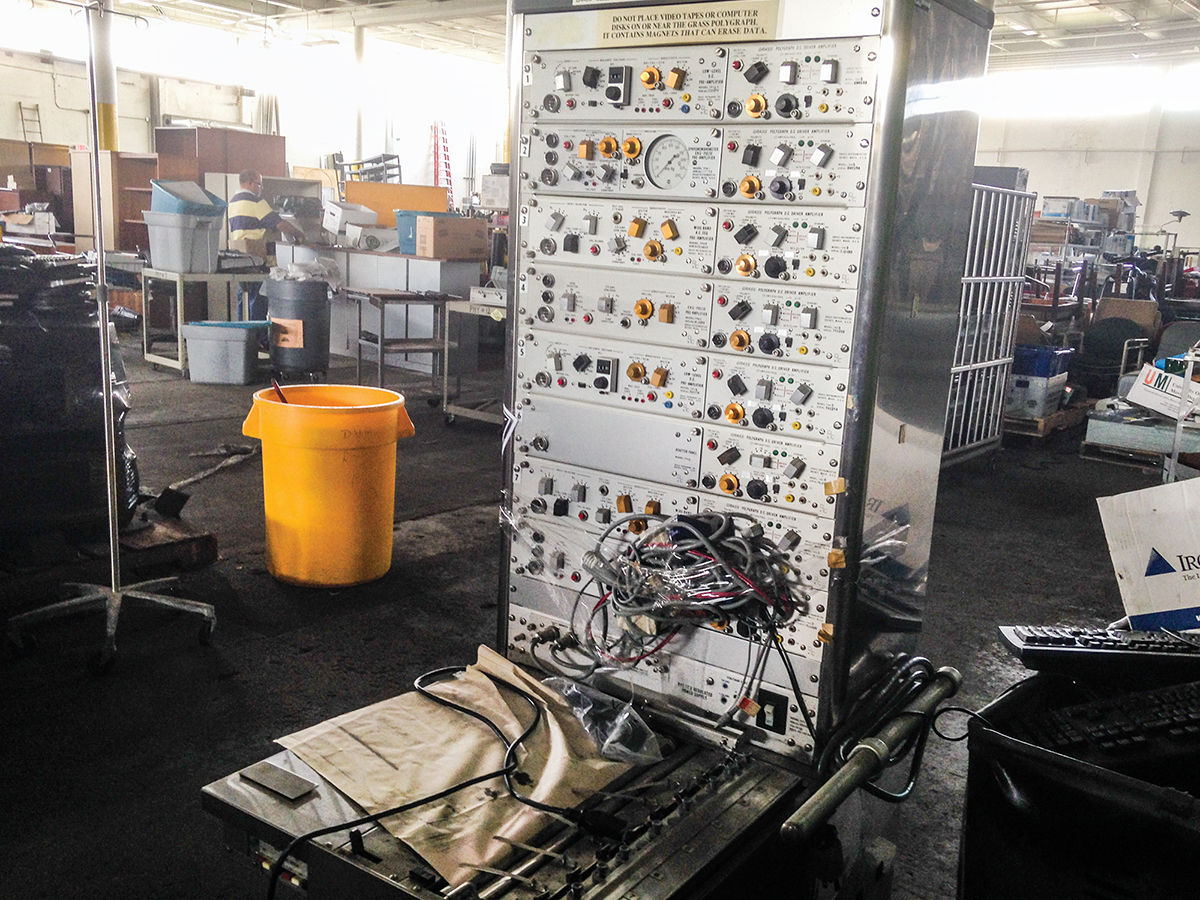
Rows of filing cabinets, a sea of chairs, couches, elliptical machines, armoires, cameras, high-tech microscopes, medical supplies, a wall of forgotten paintings and even an old telegraph machine are housed in a university warehouse, waiting to be sold at low prices.
Advertised only by word of mouth, the Surplus Property Department of the University of Miami has a warehouse in Miami Lakes where property no longer wanted by the university is stored and can be sold to the public for below-market prices. The warehouse is roughly 70,000 square feet, storing property from all campuses.
Alberto Ramon has served as the manager of Surplus for 19 years.
“We have all kinds of stuff, things you wouldn’t believe come in here,” he said. “You name it, we’ve come across it.”
His job is to take this property and make it profitable for UM.
“Everything the university owns comes through us,” Ramon said. “Our job is to try to generate funds from it and try to do this as economically and beneficial to the university as possible. You’re going to see a lot of stuff here where, although it doesn’t look high-tech for us anymore, it’s still very useful.”
When a department no longer wants a piece of property, staff must fill out a surplus transfer form. Then the property is picked up and brought to the Surplus warehouse. From there, Surplus staff sorts the property, checks its condition and determines what can be done with it.
Ideally, the property can be reused somewhere else within the university to save UM the most money. If not, property can be sold to moving companies or the general public, including students and staff. If the property cannot be sold this way, it can be scrapped for parts and sold to vendors.
Sometimes, non-functional items can have creative uses.
According to Ramon, items from Surplus have been used as props on television and in movies, including “Burn Notice,” “Miami Vice,” “Bad Boys” (I and II), “The Specialist” and “Magic City.” Some items have also been featured in commercials.
A local artist made creative use of outdated televisions from Surplus, according to Ramon.
“One time, someone at the beach did a sculpture with CRT monitors that we needed to get rid of,” he said. “He put them all together, plugged them in, and put something different on each monitor. It was pretty cool!”
As a byproduct of recycling property, Surplus serves the environment in addition to its customers.
“We reuse and find avenues for stuff that would end up in the dumpster and a landfill, because that costs money,” Ramon said. “But it’s also green and environmentally friendly to do so. It’s probably a 50/50 now. Sometimes we won’t make as much money just so that we can put it somewhere other than a landfill.”
Because Surplus only advertises by word of mouth, it is not generally well known. But upon being informed about it, students and staff expressed interest in using the service, such as Dezare Sellers, a resident assistant in Hecht.
“The prices for things when you go off-campus … it costs real money, and most people in college don’t have real money. This is nice to know,” she said.
Senior psychology major Jared Koch said he might be “a little discouraged” to visit Surplus because it is 30 minutes from campus by car, but would consider it as a future option.
“If the prices are low enough, definitely,” Koch said.
Surplus is open to the public on Tuesdays and Thursdays. However, the operation itself runs nonstop. The warehouse receives deliveries everyday, sometimes making for a crowded warehouse.
“People come, and they think, ‘Oh, this place is packed,’” Ramon said. “But that’s because we’re always getting stuff. We could sell half of this to somebody, and tomorrow, half more would come in from somewhere else.”
Even with the consistent influx of property, Ramon is not worried about running out of space.
“We will have space, always,” he said. “We just haven’t pared down because I don’t want to throw this stuff away. Some of it is still good, so we’re trying to find ways of disposing of it and still generating an income from it.”






